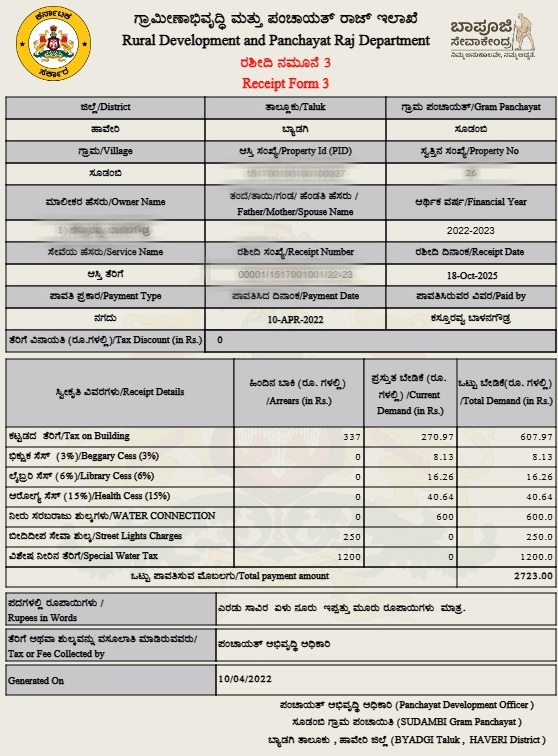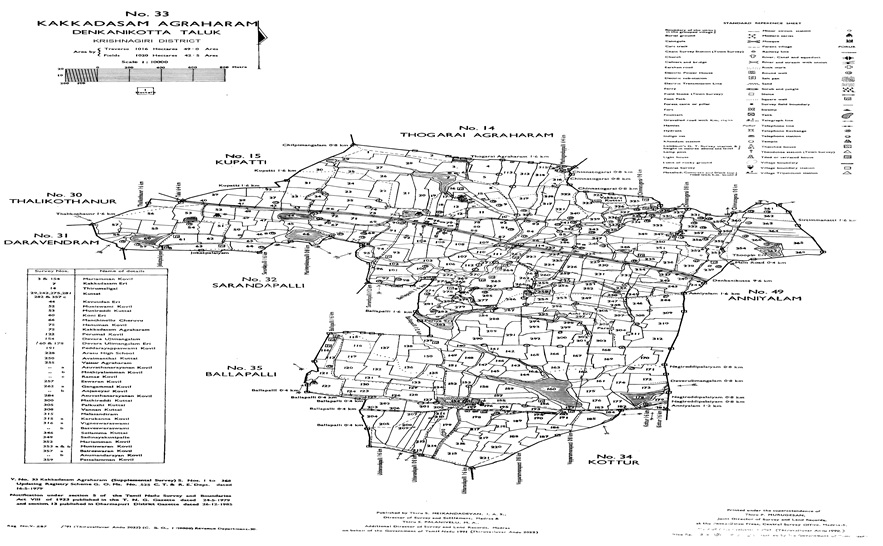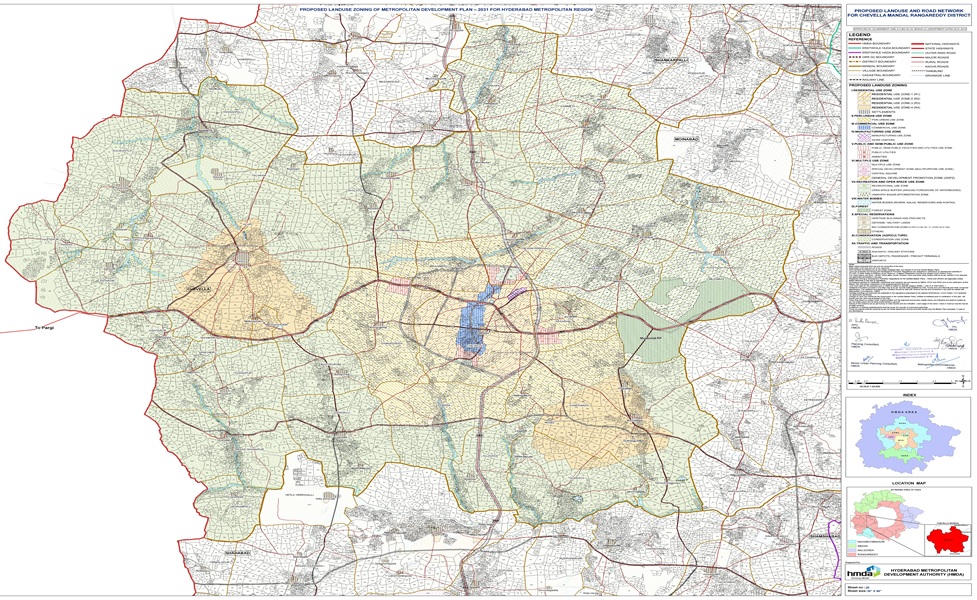A Legal Heir Certificate is an essential document in Maharashtra that establishes the rightful successors of a deceased individual. It is required to claim assets, transfer property, and settle various legal obligations left behind by the deceased. Understanding how to obtain this certificate can simplify the process of inheritance and ensure that rightful heirs can access the assets entitled to them.
The application process for a Legal Heir Certificate involves specific steps and adherence to eligibility criteria set by local authorities. Heirs must approach the designated office, often the Tahasildar or Taluk office, and provide necessary documentation to support their claim. Familiarity with this process can significantly reduce the time and effort involved in obtaining the certificate.
Legal implications accompany the issuance of a Legal Heir Certificate, reinforcing its necessity for various legal transactions, including property and financial matters. Delving into the requirements and processes involved will equip heirs with the knowledge needed to navigate these situations effectively.
Key Takeaways
- A Legal Heir Certificate is crucial for transferring assets after someone’s death.
- The application process requires specific documentation and adherence to legal criteria.
- Understanding the timeframe and implications can help heirs manage their responsibilities more effectively.
Understanding Legal Heir Certificate
A Legal Heir Certificate is an essential document that determines the rightful heirs of a deceased person. It facilitates the transfer of assets and properties, ensuring that legal rights are recognized according to law.
Definition and Purpose
A Legal Heir Certificate is a legal document that verifies the relationship between the deceased and their heirs. It is crucial for settling various legal matters, including inheritance rights, asset claims, and property transfers.
This certificate serves multiple purposes. It is primarily used to help heirs claim insurance benefits, access bank accounts, and transfer ownership of properties. Furthermore, it helps establish the identity of the person entitled to the assets, thereby minimizing potential disputes among heirs.
Legal Framework in Maharashtra
In Maharashtra, obtaining a Legal Heir Certificate involves specific legal procedures defined by the state’s legal framework. The Maharashtra Revenue Code governs this process. The applicant must approach the Taluk Office or Tahasildar with required documents such as identity proof, death certificate of the deceased, and relationship proof.
The authorities review the application, verify the claims, and issue the certificate after confirming the rightful heirs. In some cases, the involvement of a lawyer or legal representative may assist in navigating complex situations, thus ensuring compliance with the legal requirements necessary for the certificate’s issuance.
Eligibility Criteria
Obtaining a Legal Heir Certificate in Maharashtra requires certain eligibility criteria to be met. Understanding who qualifies as a legal heir is crucial for a smooth application process. Below are specific details regarding the identification of potential legal heirs.
Identifying Potential Legal Heirs
Legal heirs are typically defined by relationship to the deceased. The primary categories include:
- Spouse: The surviving wife or husband is a recognized legal heir.
- Children: Biological and legally adopted children have rights to inherit.
- Parents: If there are no children or spouse, the parents of the deceased inherit next.
- Siblings: Brothers and sisters may also qualify if there are no closer relatives.
It is essential that the applicant documents these relationships clearly. Supporting documents, such as birth certificates, marriage certificates, and family trees, may be required to establish the legitimacy of the claim. Proper identification of heirs ensures that the distribution of assets occurs without disputes, in accordance with personal laws governing inheritance.
Application Process
The application process for obtaining a Legal Heir Certificate in Maharashtra involves specific requirements and a clearly defined set of steps to follow. This process ensures that heirs can legally claim the assets and rights of the deceased without any conflict.
Required Documents
To apply for a Legal Heir Certificate in Maharashtra, the following documents are typically required:
- Death Certificate: An official certificate proving the death of the individual.
- Identity Proofs: Valid identity proofs of the legal heirs, which may include Aadhar cards, PAN cards, or voter ID.
- Address Proofs: Documentation confirming the address of both the deceased and the applicants.
- Affidavit: A sworn affidavit stating the relationship of the applicants with the deceased may be required.
- Other Relevant Documents: Additional documents as requested by the concerned authority.
Having these documents ready can streamline the application process and prevent delays.
Step-by-Step Procedure
- Visit the Taluk Office: The applicant must first visit the local Taluk or Tehsil Office where the deceased resided.
- Obtain the Application Form: They can collect the application form in person or download it from the official Maharashtra government website.
- Fill Out the Application: It is important to complete the form accurately, providing details such as the deceased’s name, date of death, and the relationship of the applicant.
- Attach Required Documents: All required documents, including the death certificate and identity proofs, must be attached with the application.
- Submit the Application: After ensuring all documents are in order, the applicant submits the application to the concerned authority.
- Verification Process: The submission undergoes verification by officials like the Village Administrative Officer and Revenue Inspector.
Following these steps methodically can help ensure a smooth application process.
Competent Authority for Issuance
The issuance of the Legal Heir Certificate in Maharashtra is handled by the local Taluk Office (Tehsil Office).
- Village Administrative Officer (VAO): The VAO plays a critical role in the verification of the application and documents.
- Revenue Inspector: This official also conducts a verification process to confirm the claims made in the application.
The combined efforts of these authorities ensure that the certificates are issued in accordance with the law, maintaining accuracy and legitimacy in the process.
Timeframe and Processing
Obtaining a Legal Heir Certificate in Maharashtra involves specific timelines and a straightforward application process. Understanding the duration for issuance and how to track the application status can significantly ease the experience for applicants.
Expected Duration for Issuance
The typical timeframe for receiving a Legal Heir Certificate in Maharashtra is between 15 to 30 days. Most applications are processed within this period, depending on the completeness of the submitted documents and the workload at the respective Taluk office.
For example:
- Complete Applications: 15 days for processing.
- Incomplete Applications: Longer delays may occur, often extending beyond 30 days.
Factors that may influence the processing time include:
- The specific district’s administrative efficiency.
- The volume of applications being processed at the time.
Tracking Application Status
Applicants can track the status of their Legal Heir Certificate application through the Taluk Office or the District Civil Court where the application was submitted.
Key steps to track the status include:
- Inquiry at the Taluk Office: Direct visit for updates.
- Online Portals: Some districts may offer online tracking options.
- Contacting Officials: Calling the office to ask for the status can also be helpful.
Maintaining a record of the application receipt and any reference numbers provided during submission facilitates smoother tracking. It is advisable to follow up regularly, especially if the waiting period exceeds the expected timeframe.
Legal Implications and Uses
The Legal Heir Certificate holds significant value in estate management and facilitating the rightful distribution of assets. It serves multiple purposes, especially in the context of inheritance laws and claiming various benefits tied to the deceased.
Inheritance and Succession
The Legal Heir Certificate is fundamental in verifying the rightful heirs of a deceased person. Under the Indian Succession Act, it simplifies the distribution of assets among family members, ensuring that the decedent’s wishes are respected.
Without this certificate, heirs may face legal hurdles when trying to access property, bank accounts, or financial assets. It acts as a legal acknowledgment of an individual’s position in the family tree, which is essential while transferring assets like property or investments.
In Maharashtra, obtaining this certificate can expedite the entire process of inheritance. It also helps avoid disputes among relatives regarding claim rights, thereby facilitating smoother succession planning.
Claiming Rights and Benefits
Legal Heir Certificates allow individuals to claim a variety of benefits associated with the deceased’s assets. This includes accessing insurance claims, pensions, and other government grants.
For instance, beneficiaries may need the certificate to settle remaining bank accounts or transfer utility services into their names. Many organizations, including banks and government agencies, require this document to ensure that benefits are distributed to the rightful heirs.
Furthermore, in Maharashtra, this certificate can also play a role in property disputes and can be presented in court if necessary, reinforcing the heirs’ legal standing. The existence of this certificate can streamline the often complex processes involved in collecting the deceased’s benefits, ultimately saving time and potential conflict.
Frequently Asked Questions
This section addresses common inquiries about the process of obtaining a Legal Heir Certificate in Maharashtra. It covers necessary documents, application locations, online processes, timelines for certificate acquisition, and legal implications.
What are the required documents for obtaining a legal heir certificate in Maharashtra?
To obtain a Legal Heir Certificate, an applicant must provide several key documents. These include the deceased’s death certificate, the applicant’s identity proof, and proof of relationship with the deceased.
Additional documents, such as family tree details, may also be required in certain cases. Each district may have specific requirements, so it is advisable to verify locally.
Where can one apply for a legal heir certificate in Maharashtra?
In Maharashtra, individuals can apply for a Legal Heir Certificate at the local Taluk Office or the Tahasildar’s office.
Alternatively, applicants may seek assistance from a lawyer at the District Civil Court for guidance in the application process.
What is the process for applying for a legal heir certificate online in Mumbai?
In Mumbai, the application process for a Legal Heir Certificate can be completed online through the respective e-portal.
The applicant must fill out the application form accurately and upload required documents. Once submitted, the application will be processed by the appropriate authorities.
How long does it generally take to obtain a legal heir certificate in Maharashtra?
The time frame for obtaining a Legal Heir Certificate in Maharashtra varies. Generally, it may take anywhere from a few days to several weeks for processing.
Factors influencing the timeline include the completeness of the application and the workload of the relevant authorities.
Can a legal heir sell property in the absence of a succession certificate in Maharashtra?
Yes, a legal heir can sell property without a succession certificate in Maharashtra. However, the presence of a Legal Heir Certificate is crucial for establishing rightful ownership and facilitating smooth transactions.
It is advisable for legal heirs to acquire the certificate to avoid potential disputes in the future.
What are the legal implications of not having a legal heir certificate when dealing with a deceased person’s estate in Maharashtra?
Not having a Legal Heir Certificate can create significant legal complications when managing a deceased person’s estate. Without it, heirs may face challenges in claiming rights to property and assets.
Additionally, the absence of the certificate can lead to disputes among potential heirs, complicating the estate settlement process.



